Filter by
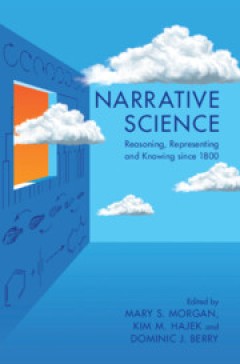
Narrative Science Reasoning, Representing and Knowing since 1800
Narrative Science examines the use of narrative in scientific research over the last two centuries. It brings together an international group of scholars who have engaged in intense collaboration to find and develop crucial cases of narrative in science. Motivated and coordinated by the Narrative Science
- Edition
- -
- ISBN/ISSN
- 9781009004329
- Collation
- -
- Series Title
- -
- Call Number
- T 501 MOR n
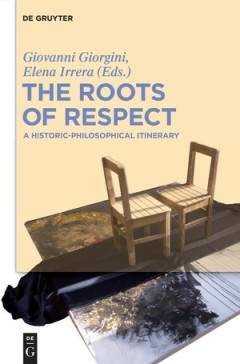
The Roots Of Respect: A Historic-philosophical Itinerary
Despite the increasing concern for the issue of respect for persons displayed over the last decades by political philosophers, human-right thinkers, social and ethical theorists, a comprehensive treatment of the problem from a historical-philosophical perspective is conspicuously absent. The present collection of essays aims to contribute to the fulfillment of this gap by offering a reconstruct…
- Edition
- -
- ISBN/ISSN
- 9783110448139
- Collation
- -
- Series Title
- -
- Call Number
- -
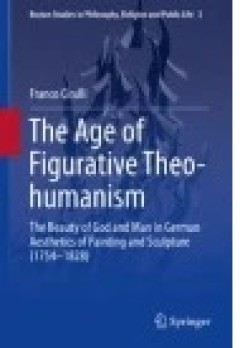
The Age of Figurative Theo-humanism
This is a comprehensive, integrated account of eighteenth and early nineteenth century German figurative aesthetics. The author focuses on the theologically-minded discourse on the visual arts that unfolded in Germany, circa 1754-1828, to critique the assumption that German romanticism and idealism pursued a formalist worship of beauty and of unbridled artistic autonomy. This book foregrounds w…
- Edition
- -
- ISBN/ISSN
- 978-3-319-10000-5
- Collation
- XVIII, 191
- Series Title
- Boston Studies in Philosophy, Religion and Public Life
- Call Number
- -
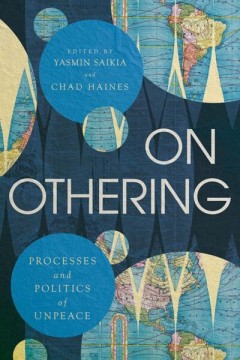
On Othering Processes and Politics of Unpeace
On Othering: Processes and Politics of Unpeace examines the process of othering from an international perspective and considers how it undermines peacemaking and is perpetuated by colonialism and globalization. Taking a humanistic approach, contributors argue that celebrating differences can have a transformative change in seeking peaceful solutions to problems created by people, institutions, …
- Edition
- -
- ISBN/ISSN
- 9781771993876
- Collation
- -
- Series Title
- -
- Call Number
- 6 x 9, 360 pages
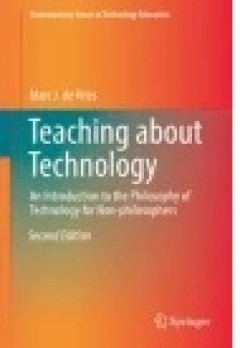
Teaching About Technology
Teaching about technology, at all levels of education, can only be done properly when those who teach have a clear idea about what it is that they teach. In other words: they should be able to give an appropriate answer to the question: what is technology? The question of the nature of technology is explored in the philosophy of technology, making this a highly relevant discipline for those who…
- Edition
- -
- ISBN/ISSN
- 978-3-319-32945-1
- Collation
- X, 148
- Series Title
- Contemporary Issues in Technology Education
- Call Number
- -

Technen: Elements Of Recent History Of Information Technologies With Epistemo…
The book expresses the conviction that the art of creating tools – Greek techne – changes its character together with the change of civilization epochs and co-determines such changes. This does not mean that tools typical for a civilization epoch determine it completely, but they change our way of perceiving and interpreting the world. There might have been many such epochs in the history o…
- Edition
- -
- ISBN/ISSN
- 978-3-319-09033-7
- Collation
- X, 320
- Series Title
- Intelligent Systems Reference Library
- Call Number
- -
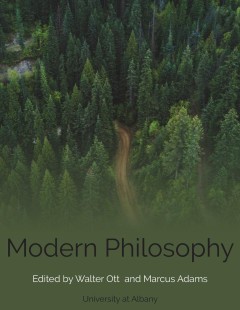
Modern Philosophy
This is a textbook (or better, a workbook) in modern philosophy. It combines readings from primary sources with two pedagogical tools. Paragraphs in italics introduce figures and texts. Numbered study questions (also in italics) ask students to reconstruct an argument or position from the text, or draw connections among the readings. Creator
- Edition
- -
- ISBN/ISSN
- -
- Collation
- -
- Series Title
- -
- Call Number
- 100 OTT m
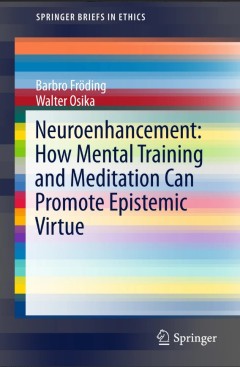
Neuroenhancement: how mental training and meditation can promote epistemic vi…
This book explores how one can bring about changes in the brain through meditation, both through attention-focus training and through compassion training. Recent findings in the natural sciences have confirmed that it is possible for humans to achieve these structural and functional changes through various life-style practices. It is argued that meditation enables us to influence some aspects o…
- Edition
- 1
- ISBN/ISSN
- 978-3-319-23516-5
- Collation
- XI, 110
- Series Title
- SpringerBriefs in Ethics
- Call Number
- -

Models of the History of Philosophy:Vol. III: The Second Enlightenment and th…
This is the third volume of Models of the History of Philosophy, a collaborative work on the history of the history of philosophy dating from the Renaissance to the end of the nineteenth century. The volume covers a decisive period in the history of modern thought, from Voltaire and the great “Encyclopédie” of Diderot and d'Alembert to the age of Kant, i.e. from the histoire de l'esprit hu…
- Edition
- 1
- ISBN/ISSN
- 978-94-017-9965-2
- Collation
- XXXII, 1000
- Series Title
- International Archives of the History of Ideas Archives internationales d'histoire des idées
- Call Number
- -

Models of the History of Philosophy:Vol. III: The Second Enlightenment and th…
This is the third volume of Models of the History of Philosophy, a collaborative work on the history of the history of philosophy dating from the Renaissance to the end of the nineteenth century. The volume covers a decisive period in the history of modern thought, from Voltaire and the great “Encyclopédie” of Diderot and d'Alembert to the age of Kant, i.e. from the histoire de l'esprit hu…
- Edition
- 1
- ISBN/ISSN
- 978-94-017-9965-2
- Collation
- XXXII, 1000
- Series Title
- International Archives of the History of Ideas Archives internationales d'histoire des idées
- Call Number
- -
 Computer Science, Information & General Works
Computer Science, Information & General Works  Philosophy & Psychology
Philosophy & Psychology  Religion
Religion  Social Sciences
Social Sciences  Language
Language  Pure Science
Pure Science  Applied Sciences
Applied Sciences  Art & Recreation
Art & Recreation  Literature
Literature  History & Geography
History & Geography